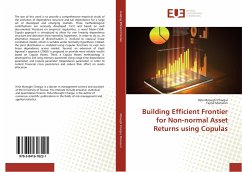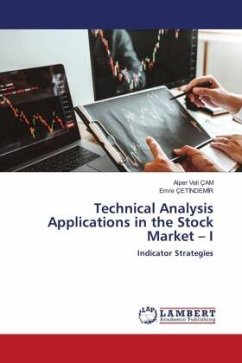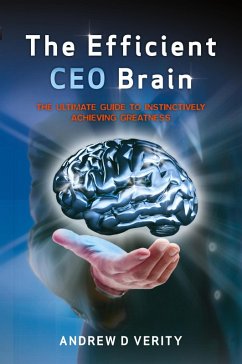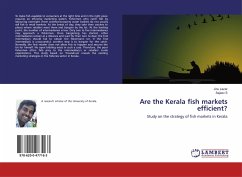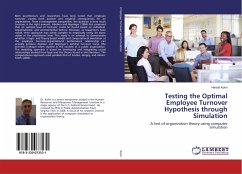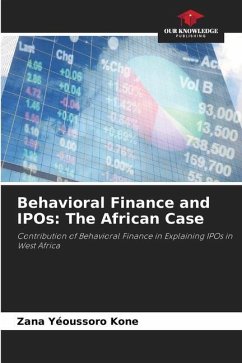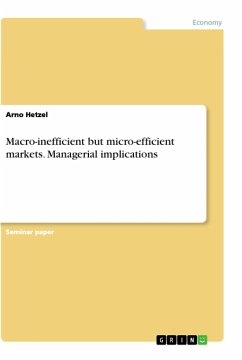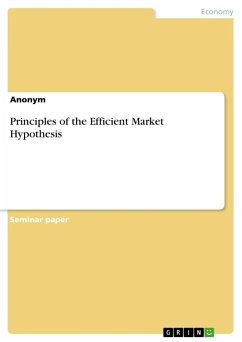
Principles of the Efficient Market Hypothesis

PAYBACK Punkte
0 °P sammeln!
Seminar paper from the year 2018 in the subject Business economics - Market research, grade: 1,0, accadis Hochschule Bad Homburg, course: International Finance, language: English, abstract: This project will focus on the Efficient Market Hypothesis which is used in the form of its abbreviation EMH during the next sections. In this context, in Part A EMH will be examined in the context of the Dow Jones Industrial Average, which includes 30 components and is America's most prominent and globally applied stock index. Multiple economists have taken studies of efficient market hypothesis to their m...
Seminar paper from the year 2018 in the subject Business economics - Market research, grade: 1,0, accadis Hochschule Bad Homburg, course: International Finance, language: English, abstract: This project will focus on the Efficient Market Hypothesis which is used in the form of its abbreviation EMH during the next sections. In this context, in Part A EMH will be examined in the context of the Dow Jones Industrial Average, which includes 30 components and is America's most prominent and globally applied stock index. Multiple economists have taken studies of efficient market hypothesis to their main subject, subsequently, efficient market hypothesis is one of the most common and observed theories in modern finance. Today, EMH is widely used and prospers from frequent testing, which, in the past, has led to new findings, more precisely, different emphasis of EMH. During his research, the previously mentioned economist Fama investigated in his test that there must be three emphasis of EMH, which he differentiated into weak form market efficiency, semi-strong form market efficiency as well as strong form market efficiency. In the modern theory of finance, the most known starting theory is that of efficient capital markets. In repetition to part A of this assignment, the term ¿efficiency¿ denotes the fact that investors have no opportunity of obtaining abnormal profits from capital market transactions as compared to other investors, so that they cannot beat the market. Consequently, investors are forced to invest in higher risk assets to increase the probability of gaining short term profits. The EMH theory is very controversial and many opposing opinions regarding this theory exist. By empirically testing, this assignment outlines the insufficiency to reject Weak Form Market Efficiency for the Dow Jones Industrial Average index. However, stock market returns are considered to be random. It is suggested that investors are incapable of constantly outperforming the market even if stock market indexes show certain temporarily anomalies, which remain hypothesized. Besides of other studies and reports, this assignment emphasizes the inability of the Efficient Market Hypothesis to explain anomalies at the current state of research. Finally, further research on the basis of new empirical data will maintain the debates about interpretation and possibilities to forecast stock prices in the course of EMH.




